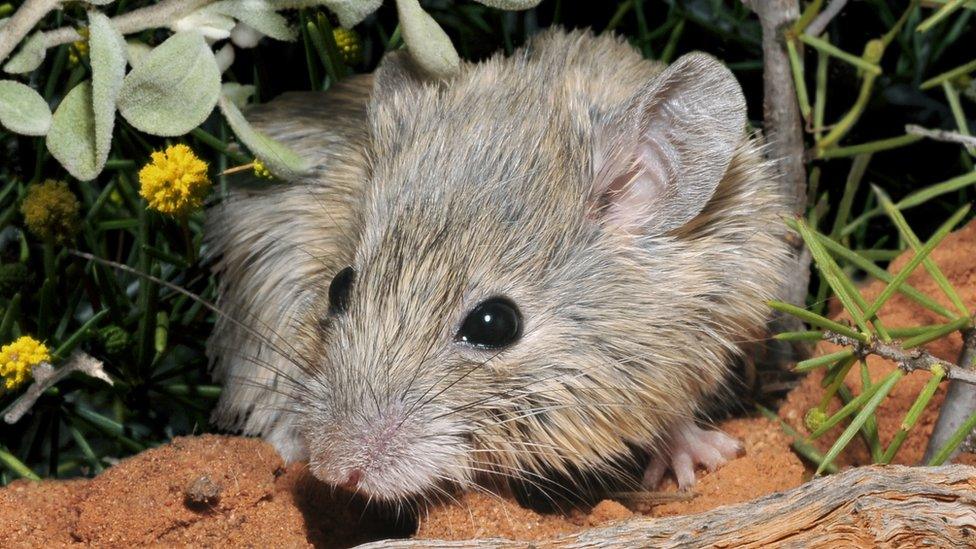Mouse thought to be extinct rediscovered in Australia
- Published
- comments

The Shark Bay mouse is the same as the Gould's mouse which people thought was extinct
A mouse that was thought to have gone extinct 150 years ago has been rediscovered by scientists, however the discovery highlights another issue.
The Gould's mouse is native to Australia and was rediscovered by a study lead by Emily Roycroft and a team of researchers at the Australian National University.
The team discovered that Gould's mouse DNA is actually the exact same as the Shark Bay mouse DNA, so they never actually became extinct - they just had two different names for the same species.
The Shark Bay mouse is only found on the coastal islands, but the Gould's mouse was dominant throughout Australian mainland - indicating that the species has suffered a huge population decline.
The team behind the study had used the DNA of eight extinct species, including the Gould's mouse, and compared them to 42 living species of rodents in Australia.
They found that the DNA from the Gould's mouse is the same as the Shark Bay mouse, a species which is found on the costal islands off Australia.
This means that the species of rodent was once widespread throughout Australia, but rather than become extinct, they suffered a huge population decline.
Another rodent native to Australia is the bush rat
Out of all extinctions that have happened to mammal species since the late 1700's, native rodents make up 41 percent of them.
Emily Roycroft and her team of researchers were shocked to find these results and said that this could be down to European colonisation in the late 1700s - a time when feral cats were introduced, and land was cleared for agriculture.
She said: "We still have a lot of biodiversity to lose here in Australia..... and we're not doing enough to protect it."
- Published5 July 2021
- Published5 July 2021
- Published3 July 2021
